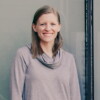Learning chemistry through narrative-rich VR adventures
Summary
Current methods for teaching STEM courses frequently fail to engage large segments of students, leading to low retention and disparities in access. Dreamscape Learn (DSL) is a cutting-edge technology created to enhance engagement through narrative-rich VR adventures where the learner is the hero of the story. We are working to launch a new course design that will change how we teach chemistry using PI and DSL. PI provides scaffolding for mitigating unintended consequences, designing for diverse learners, and seeking more perspectives as we design and launch this course. It also is an experience for students. In the course we are building, learners will experience opportunities to practice PI embedded in VR-based narratives and then be challenged with deliberate post-experience reflection.
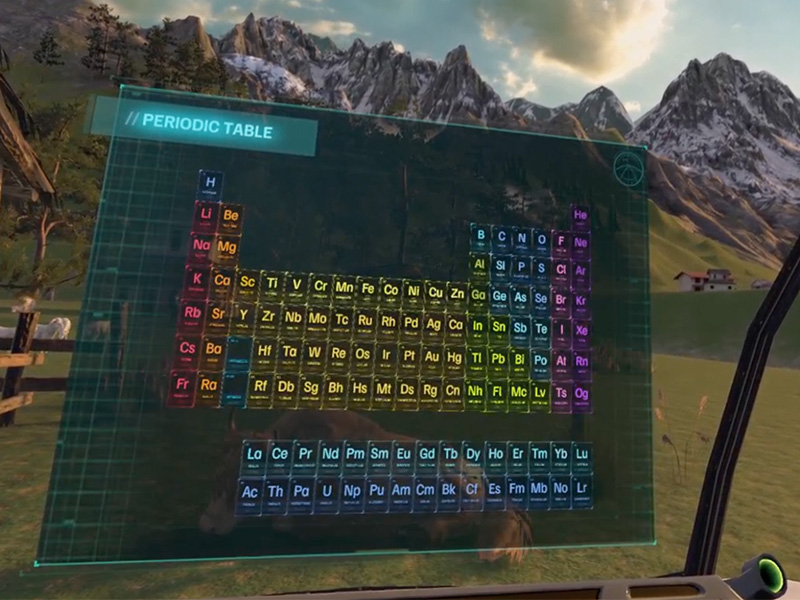
Reimagining how we teach chemistry
Principled Innovation is guiding how virtual reality learning experiences are crafted at ASU.
“Chemistry and STEM in general, have been hard concepts to teach, are one of the biggest areas we lose students in K-12 and HED, and have the most job openings in coming years – and yet we teach it the way we always have, and view it as a weed out course. This mindset has to change, and the way we are using DSL and PI feels like a real opportunity for us to rethink and teach these courses and concepts in a brand-new, innovative, exciting, and understandable way.”
– Lisa Flesher, chief of Realm 4 Initiatives
- PI guides immersive curriculum creationCreate emotionally engaging, intuitive, enjoyable, and less intimidating learning experiences using the Principled Innovation framework for the processes guiding curriculum development
- Bolster student successReduce the risk of attrition, inspire confidence in learners, and enable students from all backgrounds to succeed in their chosen field of study.
- Incorporate PI practices to students' experiencesIntroduce students to PI practices strategically embedded in their VR and course experiences.
The Chemistry experience builds on the foundation of the Alien Zoo, serving as a successor that incorporates lessons learned from our first effort while leveraging advanced technologies such as cloud streaming, higher-quality graphics, and improved pod infrastructure.
Alireza Bahremand, DSL VR programmer
Tracking VR chemistry over time
Spring 2024
We Pilot-tested the first module of Chemistry, called Aqueous Solutions, with 45 entry-level chemistry students
Fall 2024
The Aqueous Solutions module launched in General Chemistry I for Science Majors and Chemistry for Engineers, courses which serve over 2,200 students
2025
We are in the process of developing a full General Chemistry course, coupled with lab content, with VR and PI integrated throughout.
Ongoing Community of Practice
We continue advancing the project and integrating Principled Innovation by using our transdisciplinary Community of Practice, which comprised producers, script-writers, VR programmers, expert faculty, and staff.
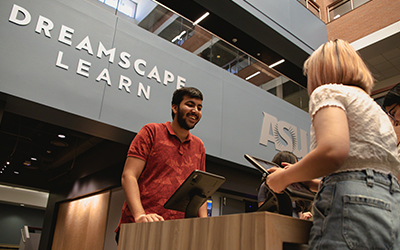
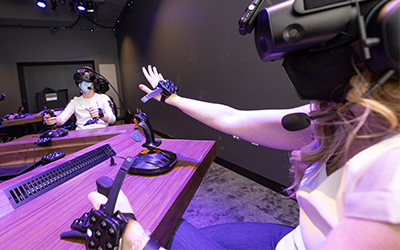
-

I am especially grateful to the Curricular team. Alongside the PI team, the Curricular team consistently asks insightful, introspective questions that align with our broader goals and ambitions. Kevin Fairhurst in particular stands out as a role model. He has a remarkable ability to ask and answer challenging questions with thoughtfulness and care, setting a strong example for how our team can think and operate holistically.
Alireza BahremandVR programmer, EdPlus at ASU -
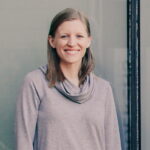
I am grateful to many individuals and groups involved in the work with DSL, but one unit that especially sticks out is our VR development team. It would be easy for any member of that team to dismiss PI in pursuit of their assignments and deadlines. What does it mean to practice PI while developing concept art, and how do you engage your character in sound design? The answers to this question are not obvious, but the team continues to engage and grapple with what PI looks like in their context.
Lisa ManningProject manager at EdPlus, and PI program manager for DSL -
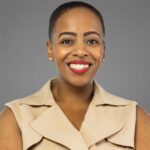
I’m impressed by the faculty’s focus on engaging diverse perspectives beyond the virtual classroom. By reimagining how we teach chemistry and highlighting real-world issues addressed by scientists who reflect our students’ identities, they inspire confidence and resilience. It empowers the next generation to pursue STEM with courage and ambition.
Dominique HayesDSL Principled Innovation program coordinator
PI practices guide our approach
We exemplify Principled Innovation by imagining new ways to engage learners with emerging technology while mitigating consequences through careful monitoring via action research and user experience testing. We are thinking critically about the future of VR in education, and how we create a baseline that ensures a positive outcome for students and ultimately contributes to human flourishing.
Designing creative solutions
We are blending cutting-edge educational technology with a whole-student approach to teaching and learning to address the challenges facing STEM education.
Engaging multiple and diverse perspectives
We depend on the diverse teams creating modules as well as the students using them to learn in order to understand if our approach is effective, inclusive, and enjoyable. This happens throughout the process: when determining the narrative, creating subject content, prototyping, conducting action research, and after the module deploys.

Engaging students, faculty and staff
STEM education, supported
Students who historically have been “weeded out” of STEM degrees but are now able to persist and have a sense of belonging. Jobs demanding STEM education are outpacing others at a nearly 2:1 rate. We are actively supporting diverse learners and learning styles to meet this social growing need.
Pedagogical innovations
Chemistry faculty are challenging themselves and their peers to reimagine the ways they can teach chemistry. Chemistry has real-world impacts, and connecting students’ motivation with a values-based pedagogy and creative storytelling helps keep students engaged.
Character work meets staff work
DSL staff benefit from the opportunity to intentionally engage and grow their character assets while creating innovative learning experiences. Showing up to work is more than about what you produce, it’s also about personal and relational growth.
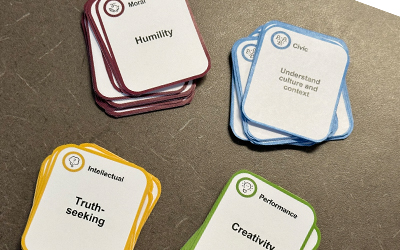
Growing from module to course
We are currently developing the remaining VR content for the General Chemistry Part 1 course. A full course contains multiple distinct modules, and each module conveys a fundamental Chemistry concept and a situation that fosters students’ practice of Principled Innovation.
Remember your chemistry lab?
We are also developing the appropriate lab content and assessments so that it ties in with the VR narrative. That means our storytelling approach to learning Chemistry content will be part of the more practical, lab-based instruction, empowering students to grow in their understanding of the concepts presented in VR.
PI reflections
We are finalizing the PI reflection materials for the existing Chemistry module. Reflection activities for students draw on something they experienced in VR and connect with the eight PI practices.
Action research
Once the course is complete, we run the course with a group of students and while conducting action research in order to understand if what we built is effective. This is an iterative process that in the past has led to changes involving curriculum, assessments, PI reflection activities, and the VR storytelling.
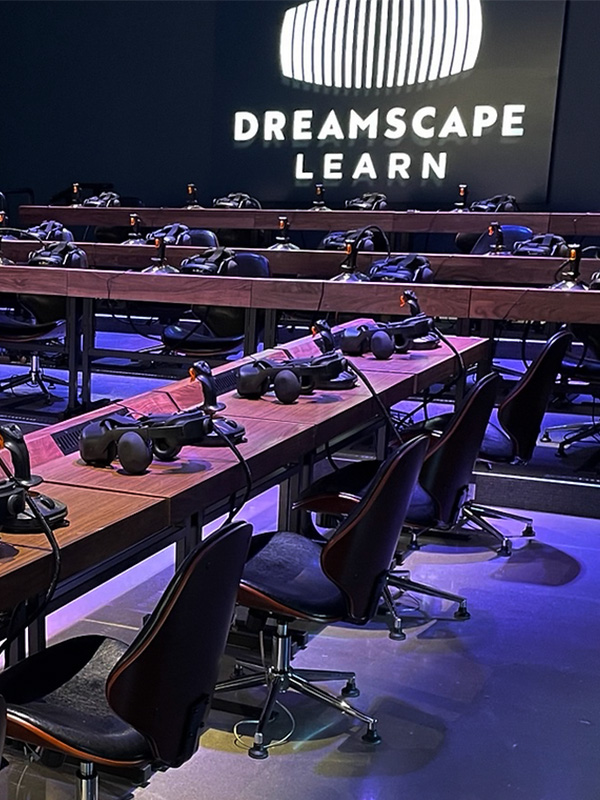
One challenge we experience is bridging between scientific principles, storytelling, curriculum development, and PI-specific reflection opportunities in an engaging and cohesive manner. This is what makes this project so impactful, but it is also very difficult work, especially when two of these elements are not typically found in higher education. We have begun seeking the input of PI partners within and outside of ASU to provide recommendations on previously launched materials that we can use to consider diverse perspectives on how to move forward.
Lisa ManningDSL Project Manager, EdPlus at ASU

